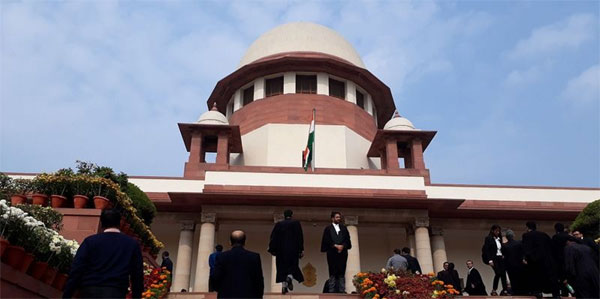Daijiworld Media Network - New Delhi
New Delhi, Aug 7: The Supreme Court has significantly raised compensation in a motor accident case, ruling that salary allowances such as House Rent Allowance (HRA) cannot be excluded while calculating compensation for the deceased's family. The court enhanced the award from Rs 7.23 lakh to Rs 14.29 lakh, reiterating that salary perks benefiting the family must be accounted for.
A bench of Justices Sudhanshu Dhulia and Aravind Kumar delivered the verdict in a case concerning the death of Lokender Kumar, who died in 2009 after being struck by a car on the Sohna–Gurgaon road. His widow and two minor children had appealed against the Punjab and Haryana High Court’s decision to uphold the exclusion of allowances from his income.

At the time of his death, Lokender Kumar earned Rs 6,500 per month, including HRA and other benefits. However, the Motor Accident Claims Tribunal had reduced this figure to Rs 3,665, excluding allowances, a decision later affirmed by the High Court.
The Supreme Court disagreed with that approach, citing its own earlier ruling in National Insurance Co. Ltd. v. Indira Srivastava. The bench said that a person’s income is not limited to take-home pay, and that regular allowances used for family welfare must be included in compensation calculations.
The court noted that no contrary evidence was produced to suggest these allowances were not regularly received or used for the family’s benefit.
Using the full Rs 6,500 monthly salary as the base, the court applied the following principles:
• One-third deduction for personal expenses
• 50% addition for future prospects
• Multiplier of 16 (based on the deceased’s age)
This led to a loss of dependency figure of Rs 12.48 lakh.
Additional compensations were granted under other standard heads:
• Rs 48,400 for spousal consortium to the widow
• Rs 48,400 each for parental consortium to the children
• Rs 18,150 each for loss of estate and funeral expenses
The total compensation awarded stood at Rs 14,29,500, with 7% interest per annum from the date of the original claim petition. However, the interest period excludes 1,855 days of delay in filing the appeal and 75 days in refiling.
The court directed the insurer to deposit the entire amount with interest. It ordered that:
• The widow’s share be released to her directly
• The children’s shares be kept in fixed deposits at a nationalised bank, with periodic interest to be used for their benefit
This ruling strengthens the precedent that allowances form a crucial part of income, especially in compensation claims involving loss of life, and must not be dismissed when calculating support for the surviving family.